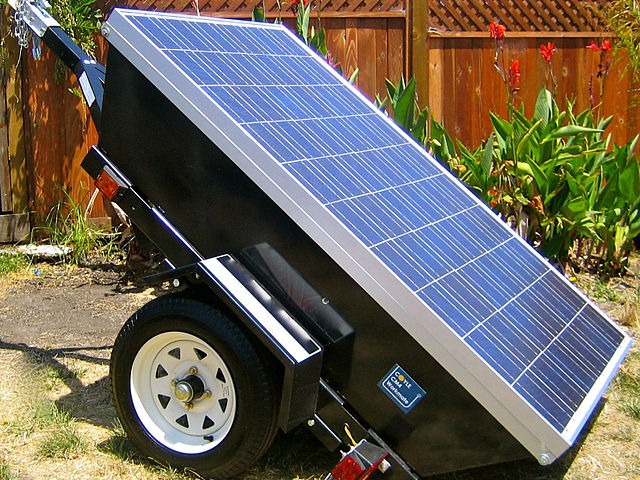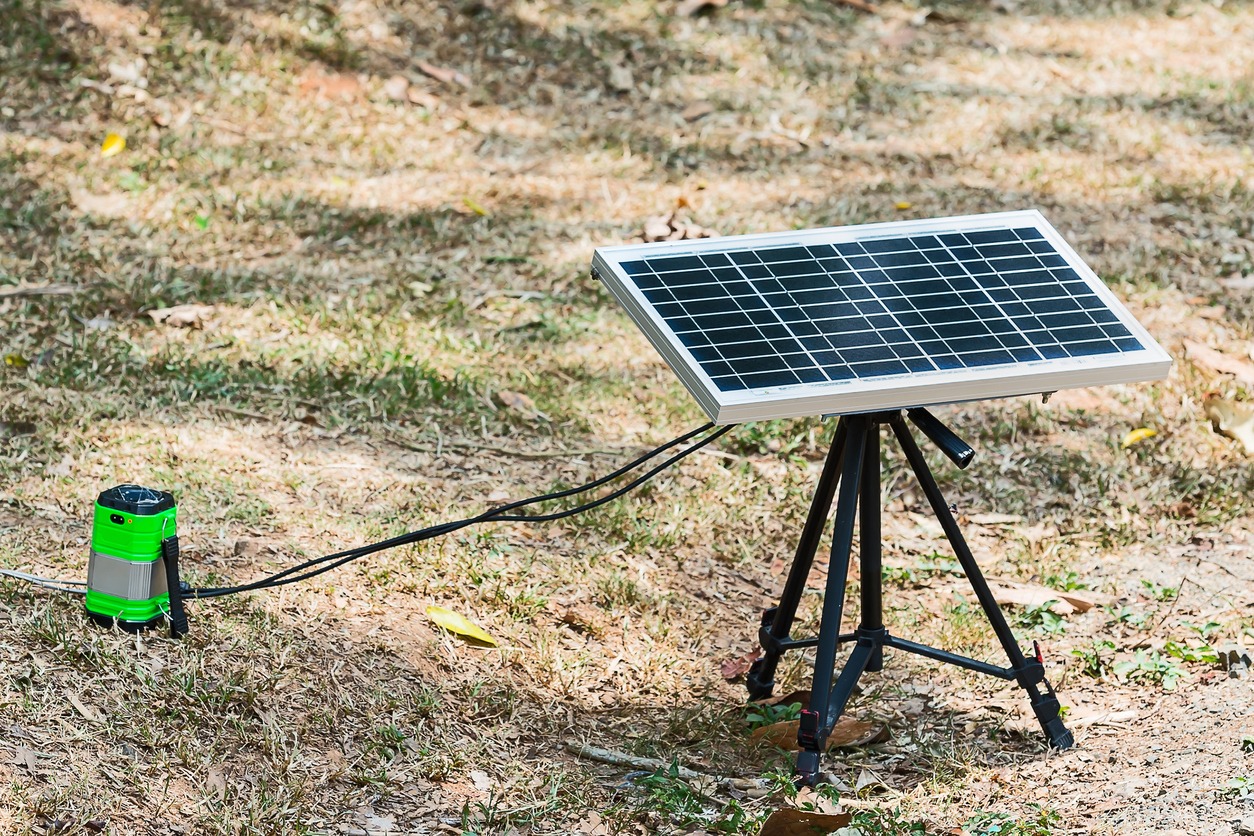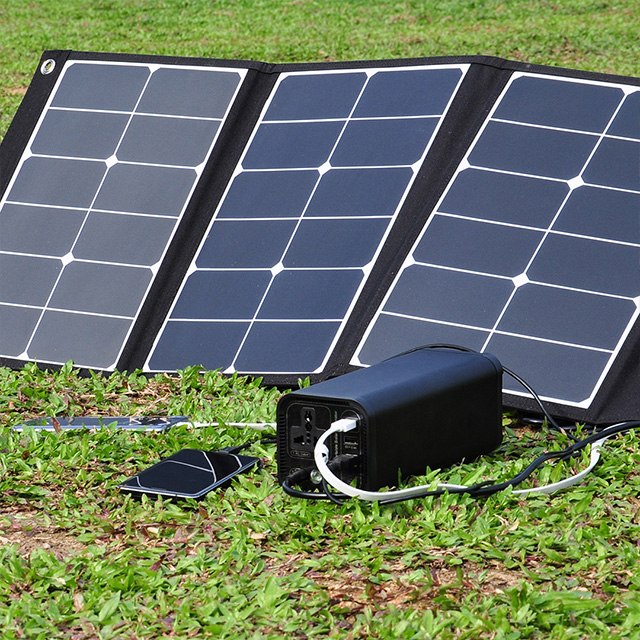Every one of us may have found ourselves in a situation where a power generator would be beneficial. But most generators need a specific energy input to burn to convert to electricity, such as gasoline, kerosene, or firewood.
Even if you pick the most portable gas generator, you’ll still need to bring gallons of gasoline, which decreases its portability. Burning gas or firewood produces unwanted smoke and odor, causing health and environmental hazards. And once you’ve run out of gas or any other fuel, your regular portable generator will be useless. Choosing solar is the greener way to go.
What do solar generators exactly do?
Solar generators harness the sun’s energy and convert it into electric energy. Solar generators have solar panels with photovoltaic cells that capture photons and use them to charge batteries, which can later be used to power electronics. Most generators convert the charge stored in batteries into AC (alternating current), as most home appliances need AC to work.
Using renewable and alternative energy sources, such as solar energy, is becoming popular, especially in a portable format. Advancements in technology and falling prices have enabled homeowners to get their own power backups that don’t require power grids to charge or work.
A solar generator comprises various components, including solar cells, a charge controller, batteries, and an inverter. Once set up, the solar generator harnesses energy from sunlight (solar cells), converts it into electric current (charge controller), stores it in a battery, and converts the stored charge into AC (inverter).
This is where the stage where solar generators convert raw energy – in this case, sunlight – into usable energy.
- A solar generator has two main components: a solar panel and a power generator.
- The solar panels convert sunlight into electricity (DC).
- A power generator has a battery, an inverter, and power outlets (DC and AC).
- An inverter converts DC to AC, which most home appliances need to run.
Reasons to choose portable solar generators
So, why choose a portable solar generator over traditional generators? In addition to their utility as backup power, portable solar generators are increasingly becoming popular for many reasons.
- They are small and compact.
- They are easy to carry.
- They bring electricity to off-the-grid or remote area.
- They attract the interest of campers and preppers who don’t want to leave anything on chance.
- They are environmentally friendly.
Although portable solar generators may not be capable of powering large appliances such as refrigerators and air conditioners, they provide sufficient power to keep smaller devices running, such as lights and fans. They are a reliable power source in an emergency or power breakdown and are handy for outdoor activities, including camping, RV trips, and fishing.
So, how does a solar generator work?
A solar-powered generator and a fuel-based generator are different from each other. Although both of them convert raw energy into usable energy, the solar-powered generator uses the power of the sun instead of fuel.
The solar panel generator has two main parts: the solar panel and the portable power generator. Solar panels convert sunlight into electricity by using the sunlight’s free electrons from atoms, which generate electricity. The portable power generator contains the inverter responsible for converting the DC power to AC power. And a battery that stores the power captured by the panels keeps the unused energy and saves it for later use. Portable solar generators also have various power outlets that allow you to plug power tools, appliances, and other electrical cords into the generator.
Portable solar versus portable fuel generators
In general, fuel generators provide more power than solar generator, but they also come with disadvantages. First, they depend on fuel to work, which preppers would have to store all the time. Second, preppers are not a big fan of fuel generators as it might be hard to find fuel in critical situations such as earthquakes, power blackouts, hurricanes and widespread fires.
Third, fuel generators are also noisy. Fourth, they pollute the environment. Even portable fuel generators are not portable at all, as you also need to carry fuel with them. That’s what makes them unsuitable for camping and other outdoor activities.
On the other hand, solar-powered generators don’t require you to keep stock of or carry fossil fuel and just need some sunlight to keep devices powered.
Solar generators provide green and renewable energy without burning any fossil fuel. Since there are no moving parts, they also require very little maintenance. The only factor limiting a solar generator’s performance is the availability of sunlight, which can be a problem if you live in an area that does not get direct or consistent sunlight.
The following are the advantages of using solar power generators:
- Solar generators produce free, clean and renewable energy.
- No recurring fueling costs when using a solar generator.
- Finding and acquiring fuel in emergencies can be challenging, and the stock only lasts for a short time.
- No need to stock fuel, which can also be dangerous. It’s not easy and safe to stockpile liquid fuel at home.
- Fossil fuel has a limited shelf life; you’d have to use a fuel stabilizer or rotate fuel (replace old fuel with new) to keep stock ready and usable.
- A solar generator can be stored safely almost anywhere, while care is needed when storing traditional generators and fuel containers.
- Solar generators operate silently. Otherwise, your neighbors will certainly notice a fuel generator.
- Solar generators don’t generate fumes as traditional fuel-based generators do.
Of course, solar generators have limitations, as well. They include limited power output and a higher upfront cost. Plus, there’s the time needed for charging batteries, limited expandability options, and comparatively difficult repairability. But solar energy is probably the best type of alternative energy. The pros easily outweigh the cons, and you can enjoy clean and renewable energy sources anytime, anywhere.


